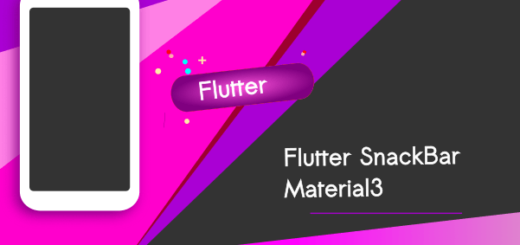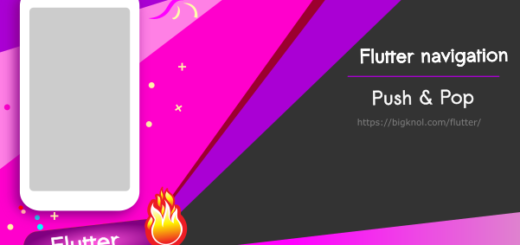10 Things to Remember Before You Start with Flutter
If you’ve decided to start on the exciting journey of app development with Flutter, you’re in for a treat! The flutter framework allows you to build natively compiled applications for mobile, web, and desktop from a single codebase. However, before you dive headfirst into the world of Flutter, there are some important things you should keep in mind to ensure a smooth and productive development process. We’ll discuss ten crucial considerations to remember before you start with Flutter.

1. Dart Programming Language
Before you start with Flutter, it’s essential to have a good grasp of the Dart programming language. Dart is the language that Flutter is built on, and while you don’t need to be an expert, familiarity with its syntax and features will significantly ease your Flutter journey.
2. Choose the Right IDE
Selecting the right Integrated Development Environment (IDE) is crucial for efficient Flutter development. Popular options like Android Studio, Visual Studio Code, and IntelliJ IDEA have excellent Flutter support. Pick the one that suits your workflow and preferences.
3. Start with Flutter Documentation
The Flutter documentation is your best friend. Make it a habit to refer to the official documentation regularly. It’s well-structured and contains comprehensive information, tutorials, and examples that will help you understand Flutter better.
4. Widgets are great
Widgets are the building blocks of Flutter applications. Understanding how they work and the different types available is fundamental. Be sure to explore the widget catalog provided by Flutter, which will serve as a valuable reference throughout your development journey.
5. UI/UX Design Principles
While Flutter makes it relatively easy to create beautiful user interfaces, having a basic understanding of UI/UX design principles is beneficial. Your app’s success depends on how user-friendly and visually appealing it is.
6. State Management : It’s a hectic game!
State management in Flutter is a crucial concept to grasp. You’ll encounter various state management solutions like Provider, Riverpod, and Bloc. Understanding when and how to use them is vital to building scalable and maintainable applications.
7. Testing and Debugging
Testing and debugging are integral parts of the development process. Familiarize yourself with Flutter’s testing tools and debugging techniques to identify and rectify issues efficiently.
8. Flutter Community
The Flutter community is vibrant and supportive. Join forums, groups, and communities like FlutterDev on Reddit, the Flutter Discord channel, or Flutter Community on GitHub. Engaging with the community can provide valuable insights and solutions to common problems.
9. Continuous Learning
Flutter and the mobile app development landscape are continually evolving. Keep up with the latest trends, updates, and best practices by reading blogs, watching videos, and attending conferences or webinars related to Flutter.
10. Have a Project Plan
Before you start building your app, have a well-defined project plan. Determine your app’s scope, features, and milestones. This plan will keep you organized and help you stay on track throughout the development process.
Verdict
Starting with Flutter can be an exciting and rewarding experience. By remembering these ten crucial considerations, you’ll be well-prepared to tackle your Flutter project head-on.



